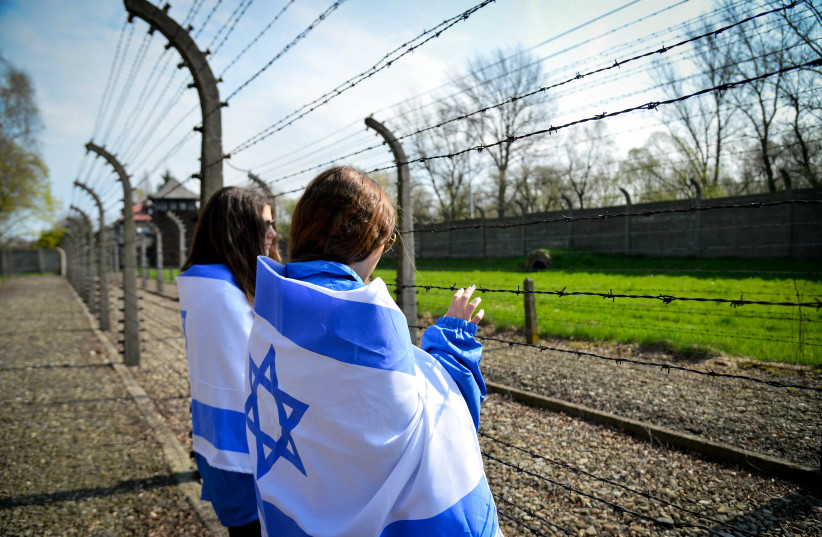Noa Kirel has accepted an invitation from the Polish Foreign Ministry to visit the country after her comments following the Eurovision song contest about her family being killed in the Holocaust caused controversy in Poland.
Polish Deputy Foreign Minister Pawel Jablonski expressed excitement on Friday in a tweet announcing that Kirel, who represented Israel and took third place in the Eurovision finale in Liverpool on May 13, will visit his country.
"Thank you @noakirel for accepting my invitation to visit Poland again," he wrote. "I hope that together we will use this opportunity to discuss history, commemoration of the victims of the Holocaust and other WWII crimes, and also the future – how to inspire Polish & Israeli youth to learn about history and get to know each other. Against false stereotypes."
Kirel faced backlash from Poland after she told Israeli news site Ynet that her “real victory [in Eurovision] was putting Israel on the map, leaving a mark and making my country proud of me. Also, to receive 12 points [the highest possible] from Poland after almost the entire Kirel family was murdered there in the Holocaust is a great achievement.”

Jablonski responded to Kirel’s comments, writing that “the fact that many people in Israel consider Poland to be a co-perpetrator of German crimes – rather than their victim – is often not the result of bad will so much as it is a result of lack of knowledge and incomplete education.
“There are many reasons for this, but one of them was certainly the organized trips of Israeli youth to Poland, which, unfortunately, confirmed the image of our country’s participation [in the Holocaust] for many years.”
Jablonski continued, turning his attention to the new format he recently introduced for Israel’s trips to Poland in which students will also visit one site recommended by the Polish government.
“We are starting a long process that will certainly not produce results immediately – but at the same time, I am sure that in the long run, it will allow us to build good Polish-Israeli relations, based on truth and mutual understanding that both our nations were victims of German crimes.
Jablonski then invite Kirel to Poland “primarily to understand why she thinks about our homeland in this way, to explain why it is painful for us and... to see with her own eyes the places where Nazi Germany committed cruel crimes against Poles and Jews in our country.”
Despite having the largest number of Righteous Among the Nations – that is, non-Jews who rescued Jews during the Holocaust – most historians consider that the long history of antisemitism among a sizeable portion of Poland’s citizens contributed to the Nazis’ ability to murder 90% of its pre-war 3.3 million Jewish population.
